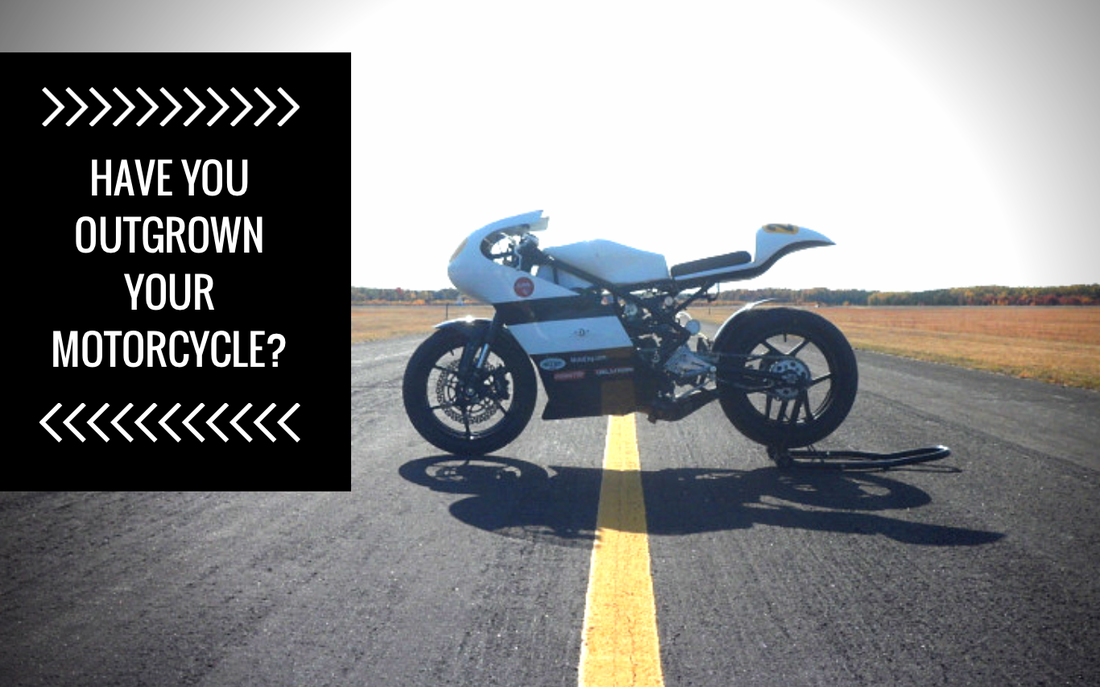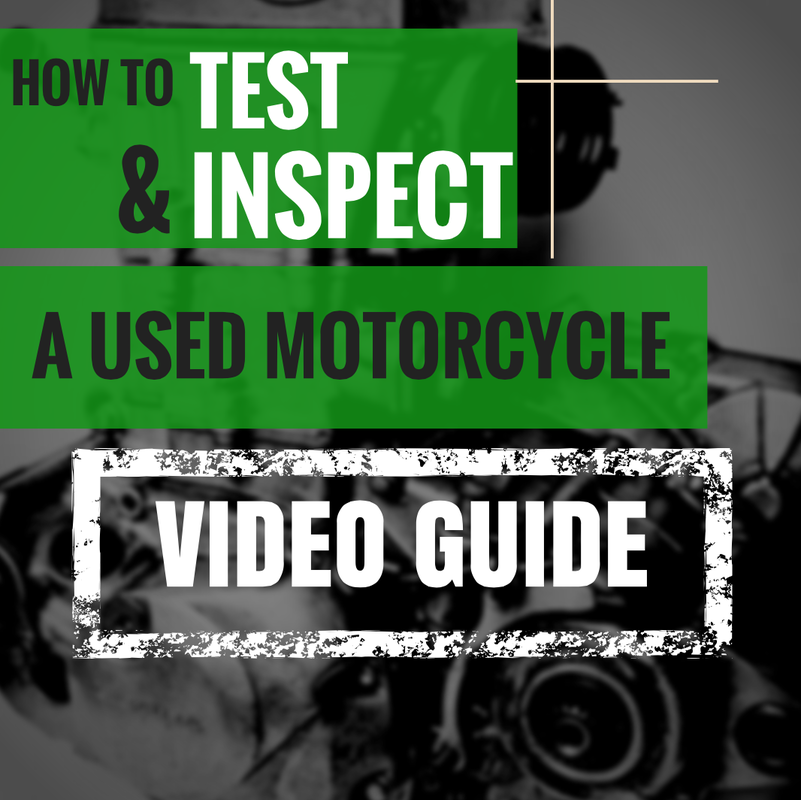A lot of new riders worry about outgrowing a Kawasaki Ninja 300, Honda CBR300 or any other small displacement motorcycle in the 250 to 500cc range. My first thought is what exactly do you mean by “outgrowing” the motorcycle? Most people that get into motorcycling are adults so surely they can’t magically add several inches to their stature and no longer fit on the bike.
I associate outgrowing a motorcycle to the word fun. It’s another way of saying, “I’m no longer challenged on this bike, I’ve learned all I want, and I’m ready to move on.” For most riders this point in time will arrive sooner or later depending on how they progress as a rider and how they utilize the bike. While I agree this happens I want to look at a few other things that may contribute to this “outgrowing” feeling because I personally love riding small displacement bikes and know several other veteran riders that enjoy them to their fullest too...
I associate outgrowing a motorcycle to the word fun. It’s another way of saying, “I’m no longer challenged on this bike, I’ve learned all I want, and I’m ready to move on.” For most riders this point in time will arrive sooner or later depending on how they progress as a rider and how they utilize the bike. While I agree this happens I want to look at a few other things that may contribute to this “outgrowing” feeling because I personally love riding small displacement bikes and know several other veteran riders that enjoy them to their fullest too...
Before you swear off your bike have you considered other factors that may be contributing to why the bike is no longer fun?
1. Are you riding in heavy traffic? While this can be challenging and exhilarating for new riders it doesn’t allow for the freedom a motorcycle was meant to give you. You are continuously checking blind spots, maintaining gaps, and staying visible. Riding in traffic requires a lot of focus, safety consciousness, and for most riders it’s one of the least desirable scenarios to be riding in.
2. Are you riding straight roads or stop light to stop light? Riding straight roads or within the confines of a city is less than ideal, no matter what size bike you’re riding. Have you ever had the pleasure of taking your small displacement bike down a winding country road and tipping it in and out of corners? Bikes like the Ninja 300 and CBR300 thrive on tight twisting roads and if you haven’t ridden one in these conditions you are missing out.
3. Are you riding with friends that have more powerful bikes? This can make things a little more difficult but shouldn’t make you want to sell your bike immediately. A lot of ground can be made up by becoming a master of braking, corner entry, and corner exit. Learning these skills on a smaller bike will make them easier to acquire and they will always transfer over to your next bike when the time comes.
If any of the small displacement bikes are suitable for you, outgrowing them shouldn’t be your primary concern. The focus should be on selecting the best motorcycle you can which meets your needs as a new rider. Outgrowing your first motorcycle is bound to happen but shouldn’t be considered a hindrance.
Ninja 300s, CBR 300s, and the like all hold their value incredibly well and are usually in demand as more riders get into the sport so reselling one shouldn’t be a problem. Assuming you don’t damage the bike while you own it, you can usually resell the bike for a few hundred dollars less than what you originally paid. Waiting until season’s end to sell the bike won’t result in any lost riding time and will give you plenty of time to search for the next step up. Even if you decide mid-season to move up, a well coordinated sell and buy scenario can take minimal time.
While I believe there are more positives than negatives to picking up a small displacement bike and then moving on to something bigger (even in a short time frame) you should be aware of and consider a couple additional costs. First, switching or terminating an insurance policy may come with a price. Checking with your insurance provider will determine if or how much this will put you out. Second, dealing with title and licensing fees should be considered. These fees vary state by state so it may be more affordable to switch bikes in one state compared to another.
One of the most enjoyable things about motorcycling is trying out different bikes and learning about how they feel, handle, and produce power. Learning as much as you can on a small displacement bike, even if it is in a short amount of time, puts another notch in your “motorcycles ridden to date” belt and will help give you perspective into what you want out of your next bike. I’ve owned a lot of bikes over the years, some I’ve held onto for a long time while others I’ve had for a matter of weeks. Even the bikes I’ve only kept for a short period I don’t regret owning or riding.
1. Are you riding in heavy traffic? While this can be challenging and exhilarating for new riders it doesn’t allow for the freedom a motorcycle was meant to give you. You are continuously checking blind spots, maintaining gaps, and staying visible. Riding in traffic requires a lot of focus, safety consciousness, and for most riders it’s one of the least desirable scenarios to be riding in.
2. Are you riding straight roads or stop light to stop light? Riding straight roads or within the confines of a city is less than ideal, no matter what size bike you’re riding. Have you ever had the pleasure of taking your small displacement bike down a winding country road and tipping it in and out of corners? Bikes like the Ninja 300 and CBR300 thrive on tight twisting roads and if you haven’t ridden one in these conditions you are missing out.
3. Are you riding with friends that have more powerful bikes? This can make things a little more difficult but shouldn’t make you want to sell your bike immediately. A lot of ground can be made up by becoming a master of braking, corner entry, and corner exit. Learning these skills on a smaller bike will make them easier to acquire and they will always transfer over to your next bike when the time comes.
If any of the small displacement bikes are suitable for you, outgrowing them shouldn’t be your primary concern. The focus should be on selecting the best motorcycle you can which meets your needs as a new rider. Outgrowing your first motorcycle is bound to happen but shouldn’t be considered a hindrance.
Ninja 300s, CBR 300s, and the like all hold their value incredibly well and are usually in demand as more riders get into the sport so reselling one shouldn’t be a problem. Assuming you don’t damage the bike while you own it, you can usually resell the bike for a few hundred dollars less than what you originally paid. Waiting until season’s end to sell the bike won’t result in any lost riding time and will give you plenty of time to search for the next step up. Even if you decide mid-season to move up, a well coordinated sell and buy scenario can take minimal time.
While I believe there are more positives than negatives to picking up a small displacement bike and then moving on to something bigger (even in a short time frame) you should be aware of and consider a couple additional costs. First, switching or terminating an insurance policy may come with a price. Checking with your insurance provider will determine if or how much this will put you out. Second, dealing with title and licensing fees should be considered. These fees vary state by state so it may be more affordable to switch bikes in one state compared to another.
One of the most enjoyable things about motorcycling is trying out different bikes and learning about how they feel, handle, and produce power. Learning as much as you can on a small displacement bike, even if it is in a short amount of time, puts another notch in your “motorcycles ridden to date” belt and will help give you perspective into what you want out of your next bike. I’ve owned a lot of bikes over the years, some I’ve held onto for a long time while others I’ve had for a matter of weeks. Even the bikes I’ve only kept for a short period I don’t regret owning or riding.




 RSS Feed
RSS Feed